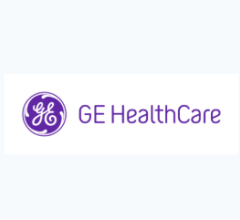April 1, 2008 - "CCTA may be used as a cost-efficient alternative to nuclear stress testing for evaluation of patients with suspected coronary artery disease,"? said James Min, M.D., New York-Presbyterian Hospital and Weill Medical College of Cornell University, NY, at at the American College of Cardiology (ACC) meeting in Chicago, IL. The report concluded 64-slice coronary CT angiography (CCTA) is more cost-effective in patients without a prior coronary artery disease (CAD) diagnosis, while SPECT myocardial perfusion imaging retains a cost advantage in patients with known coronary artery disease. In the study, researchers examined claims from health plans covering more than 10 million individuals, using ICD-9 codes to identify 142,535 patients with suspected CAD who underwent either coronary CTA or SPECT. Data was matched to 2,313 patients undergoing CTA, and 9,252 undergoing SPECT imaging (for both exams mean age 53, 41.5 percent female, 10.6 percent with diabetes mellitus, 40 percent hypertension, 52.5 percent hyperlipidemia, 16.2 percent known CAD), and five other risk factors. Patient costs and outcomes were tracked for Over nine months before and after the exam, researchers tracked patient costs and outcomes, and assessed cardiac risk based on each patient's risk factors and medications. Investigators then calculated the costs of the disease after both tests, and recorded adverse events, including myocardial infarction, angina and hospitalizations related to coronary artery disease. After multivariate adjustment, the downstream costs of coronary artery disease for patients without a prior CAD diagnosis were lower in CTA patients by $603 (95 percent confidence index [CI] $244-$2,053, p < 0.001) compared to the SPECT group. For the 16.2 percent of patients with known CAD, however, costs were lower in the SPECT group by $2,451 (95 percent CI $1,474-$4,068, p < 0.001) compared to CTA. There were no significant differences between CTA and SPECT in myocardial infarction rates (0.7 percent versus 0.8 percent), incident angina (3.8 percent versus 4.0 percent), or CAD-related hospitalizations (0.2 percent vs. 0.2 percent), according to the report. For more information: www.acc08.org
If you enjoy this content, please share it with a colleague
Related Content
Jan. 29, 2026 — The American Society for Radiation Oncology (ASTRO) has launched a national program creating Authorized ...
Jan. 27, 2026 — Researchers at the Icahn School of Medicine at Mount Sinai, in collaboration with other leading ...
Jan. 21, 2026 — Cathpax, a spin-off of the Lemer Pax group that designs, develops and commercializes team-wide, full ...
Jan. 16, 2026 — Elekta has announced that its Elekta Evo* CT-Linac has received 510(k) clearance from the U.S. Food and ...
Dec. 11, 2025 — Telix Pharmaceuticals Ltd. has announced a strategic clinical collaboration with Varian, a Siemens ...
Nov. 3, 2025 — —A new radioimmunotherapy approach has the potential to cure human epidermal growth factor receptor 2 ...
Radiotherapy contributes to about 40% of all cancer cures but still lags behind systemic therapy in funding and ...
Sept. 02, 2025 — Alpha Tau Medical Ltd., the developer of the alpha-radiation cancer therapy Alpha DaRT has announced ...
May 2, 2025 — GE HealthCare has announced an intended expansion of its radiation oncology portfolio as well as the ...
April 21, 2025 — On June 20, the American Society of Radiologic Technologists (ASRT) will award Life Member status to ...


 January 30, 2026
January 30, 2026 









